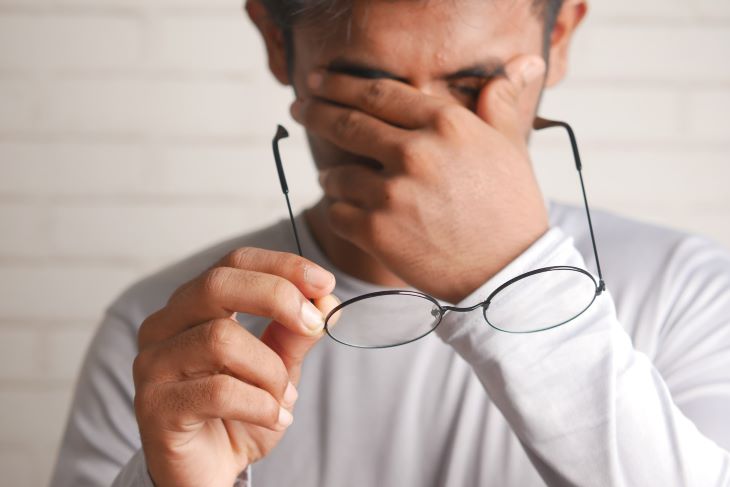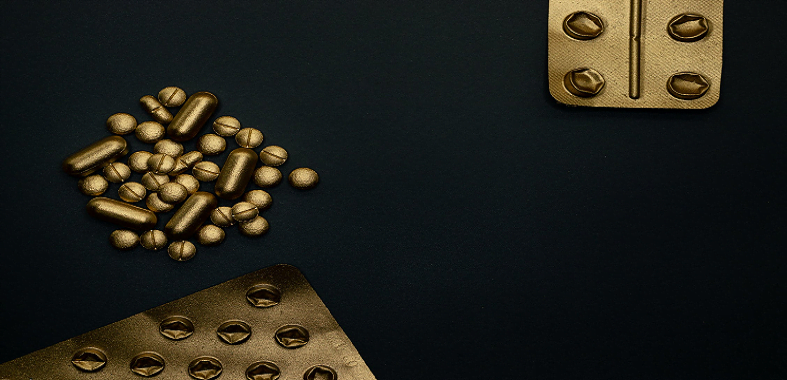Detoxification, or in its simpler form, detox, is a pharmacological intervention for alcohol dependence which involves the use of a replacement (or substitute) drug that has similar chemical characteristics to alcohol.
However, the chemicals in the replacement drug used are significantly different from alcohol so it will not cause any further harm, nor produce any pleasurable feelings that may lead to psychological dependence.
Taking the replacement drug will help to reduce the toxic chemicals in alcohol from the human body and prevent the patient from experiencing any unpleasant alcohol withdrawal symptoms when they suddenly cease their alcohol intake after a period of heavy use. (7,12)

At Rehab 4 Addiction, we are able to signpost you to a variety of organisations offering a medicated alcohol detox.
This includes NHS treatment taking place at your local hospital, as well as private detox providers.
The specific treatment providers we recommend are all either Care Quality Commission (CQC) or Care Inspectorate regulated facilities.
All treatment providers adhere to the National Institute for Health and Care Excellence (NICE) guidelines.

Alcohol withdrawal occurs when someone suffering from alcohol use disorder quits cold turkey (suddenly stops drinking) resulting in conditions ranging from mild alcohol withdrawal symptoms to extremely severe symptoms during detoxification.
Common alcohol withdrawal symptoms include headaches, nausea and tremors, whilst less common symptoms can be much more serious.
In cases of severe long-term alcohol use disorder, it may be fatal.
Uncomfortable alcohol withdrawal symptoms are most common in adults but can also occur in teenagers or children.
While a night of drinking may produce similar initial symptoms, alcohol withdrawal syndrome typically stems from heavy drinking over a long period of time.
For some, drinking for months or even weeks and then stopping abruptly can cause uncomfortable alcohol withdrawal symptoms. For others, years of alcohol abuse can develop serious alcohol withdrawal symptoms.

Alcohol withdrawal symptoms occur in response to altering neurotransmitters in the brain.
When a person drinks, the relaxed, friendly feelings alcohol inspires is actually due to the brain increasing the amount of its chief inhibitory neurotransmitter known as gamma-Aminobutyric acid (GABA). GABA is the neurotransmitter that blocks specific signals in the nervous system, slowing down the brain.
Continuously depressing the central nervous system and altering the chemistry of the brain eventually creates a dependency on the substance to feel good again. In addition, over time, someone suffering with alcohol use disorder will need more drinks in one sitting to feel the desired effects, worsening the outcome on their body.
Alcohol withdrawal symptoms are caused by an alteration in this gamma-aminobutyric acid (GABA) receptors. GABA receptors are responsible for maintaining baseline levels in the central nervous system (CNS).
Heavy alcohol use numbs these receptors, which is why those suffering from alcohol use disorder need to consume more drinks over time to feel its effects. When these receptors are numbed, the brain accommodates by shutting down the GABA receptors, leading to CNS over-excitability.
The CNS over-excitability results from the brain’s attempt to maintain equilibrium in the system. Therefore, when heavy alcohol users suddenly cease or slow drinking, the “new” CNS baseline is much higher than normal.

The primary goal of alcohol detox treatment is to help clients overcome their physical alcohol dependence. Regular heavy drinking increases a drinkers’ tolerance toward alcohol.
The more they drink the more their body becomes familiar with processing alcohol, and functioning with alcohol present in the body. This means that they will need to drink more alcohol to become inebriated compared to before.
Another characteristic of alcohol dependence is the appearance of withdrawal symptoms when drinkers go without alcohol for 6-12 hours.
The longer the person has been drinking heavily the more severe withdrawal symptoms will be.
If a person has reached the stage where consuming more alcohol reduces the withdrawal symptoms then it is safe to assume that they have developed physical alcohol dependence, although it is always important to get a professional diagnosis from a GP, or psychiatrist. (3)

There are several potential clues available to help identify if you or someone you know requires alcohol detoxification and professional support, particularly if they are experiencing symptoms of alcohol withdrawal when they stop drinking, these include:
They are coming down with minor illnesses more often such as colds, flu and stomach bugs due to poor immune system functioning.
They will begin to experience alcohol cravings 6-12 hours after their last drink.

Severe and long-term heavy drinkers force their bodies to build a ‘homeostasis’ state, and when alcohol is removed the balance is extremely upset. There are a number of serious and extreme physical sensations that could increase the risk of fatality.
In some cases, improperly handling the detox stage can prove fatal, so long-term sufferers of alcohol use disorder should always seek medical help during the process.
Below we have listed the main types of severe withdrawal symptoms which if left untreated could result in death, as well as detailing how long withdrawal symptoms last until:
It is possible to die from alcohol withdrawal especially if you have a history of epilepsy. Withdrawal delirium can also cause people to inflict self-harm. Other medical conditions associated with alcohol abuse (liver disease, Wernicke-Korsakoff syndrome, gut issues) may cause life-threatening complications for alcohol withdrawal patients.
According to current research, of all patients who are hospitalised and experience withdrawal delirium, less than 4% die. These fatalities are normally due to:

According to DSM5, a diagnosis of alcohol withdrawal syndrome is appropriate if the client has; (1)
Stopped or reduced heavy and sustained alcohol use, and reports experiencing two (or more) of the following symptoms 6 hours to 3 days after stopping their intake of alcohol:
These symptoms must cause significant distress and disrupt a person’s functioning in social, work and personal settings and are not deemed to be because of other medical conditions.

Acute Alcohol Withdrawal refers to the common physical symptoms those recovering from alcohol use disorder experience in the first few weeks after abstaining from alcohol. While some symptoms cause discomfort, others can have serious consequences.
The symptoms of acute alcohol withdrawal include:

Dependent drinkers who continue to drink to excess are at risk of developing an alcohol-specific disorder called Delirium tremens (DT).
DT is a medical condition related to alcohol withdrawal which can alter patients’ physical perception of the world around them, and anyone diagnosed with DT will experience confusion, aggression and agitation.
Also referred to as “the shakes” DT also results in uncontrollable tremors in sustained heavy drinkers after two to three days after they last consumed alcohol.
Anyone diagnosed with DT will begin to suffer from erratic tactile sensations on their skin, which feel as if something is wriggling about on the surface of their skin.
They are also prone to seeing and hearing things that are not present (visual and auditory hallucinations).
People diagnosed with DT have consumed so much alcohol that it has significantly impaired their physical functioning and severely limits the effectiveness of their immune systems.
DT patients are also more likely to develop a metabolic disorder, problems with their guts and intestines and be vulnerable to developing cirrhosis. (4,6)

When alcohol-dependent drinkers suddenly stop consuming alcohol after a period of heavy use they are at risk of developing seizures within 24 hours (and as early as 8 hours in some cases) of not consuming alcohol.
This is because certain chemicals in alcohol activate certain biological processes in the brain that can prevent excess stimulation of brain activity, and when alcohol consumption is suddenly ceased these areas become overactive which leads to the person being at risk of experiencing seizures. (2,5,6)

Below, we outline the typical alcohol detox timeline:
The first withdrawal symptoms such as headaches, nausea, anxiety and even tremors may appear but will be quite mild.
Symptoms may begin to worsen, patients may vomit, experience acute alcohol cravings and anxiety may be heightened.
Patients may begin to experience visual and auditory hallucinations during this timeframe and their skin may become itchy and irritable and may feel like something is crawling on it (tactile sensations).
This is the period in which most patients can be at risk of developing dangerous seizures, although these can appear as early as 8 hours after the last alcoholic drink for severely dependent drinkers with years of alcohol misuse behind them.
Between the second and third day after the last drink, all symptoms will become very strong, and possibly unbearable, and patients are still vulnerable to developing seizures.
As the 72-hour mark approaches the symptoms associated with delirium tremens may start to appear in heavy drinkers.
Patients who are vulnerable to delirium tremens may continue to experience symptoms associated with the condition although symptoms tend not to last too long and are generally gone in a couple of days.
As the clock ticks towards the 5-day mark, the risk of seizures diminishes rapidly, and it is unlikely patients will now experience any seizures if they haven’t already.
After a week of recovery, the most serious alcohol withdrawal symptoms will have passed.
Less serious conditions (headaches, fatigue, nausea, etc.) may persist for several weeks or longer, but conditions such as seizures are not likely to occur.
Painful symptoms typically subside within this timeframe.
Delirium tremens, however, can still have a significant impact up to 10 days after recovery and possibly longer.

Heavy drinkers of alcohol will find that if they continue to consume alcohol at high levels, they will become physically dependent on alcohol.
The more people drink alcohol the harder their brains and internal biology and chemistry have to work to adapt to the increased blood alcohol levels associated with heavy drinking, this process is known as neuroadaptation.
The process of neuroadaptation allows drinkers to continue to function physically and mentally at a reasonable level while they increase their alcohol consumption.
This can be reflected in the fact that their tolerance to alcohol has increased meaning it will take longer for them to become intoxicated than it previously did when they drank less alcohol.
This is a sign that they have become dependent on alcohol, and this can be confirmed when they begin to experience withdrawal symptoms when they go for longer than 12-24 hours without an alcoholic drink.
This is because the body’s internal physiological mechanisms are now familiar with processing alcohol and when a person ceases drinking alcohol it is thrown into a state of disarray as alcohol is a psychoactive drug that acts on the central nervous system.
Therefore, if, after adapting to alcohol consumption a person suddenly ceases drinking alcohol, the body responds by generating erratic unpleasant, physical reactions, referred to as withdrawal symptoms. (7,12)

The standard amount of time patients will receive detox usually last between one week and 10 days, although extremely heavy users of alcohol who have been diagnosed with a severe alcohol use disorder may be in detox for longer and be medically supervised if they have developed serious health issues because of their heavy drinking patterns.
The alcohol detox process will assist in slowly diminishing blood alcohol levels which play a significant role in determining the severity of withdrawal symptoms. (9)

The price of drug and alcohol detox varies depending upon the rehab centre you select, the amount of time you stay at the rehab and whether you opt to sleep in a single or multiple occupancy room.
Fortunately, there are a range of options.
If you opt for a 10-day detox with a single occupancy room, then prices range from £3,000-£6,000.
Prices for a multi-occupancy room vary from £2,000-£4,000.
If you wish to undergo a home detox, then you can expect to pay significantly less, although this comes with a higher risk of relapse.
However, home detoxes do work for many people. Expect to pay around £1,500 for a home detox.
Some insurance providers do offer packages for addiction treatment, and many drug and alcohol detox clinics and rehab centres across the UK accept these packages as part of a payment plan for treatment.
Whether or not the costs of your or your loved one’s alcohol detox could be covered by insurance will depend on the specific insurance plan in question.
You should always check your insurance coverage before establishing any payment plans with your chosen alcohol rehab provider.
For information regarding the exact prices of alcohol detox treatment near you, please contact us today.

Clinicians working with clients with alcohol dependence carry out detox treatment using the Benzodiazepine drug group as this drug type has been found to possess the chemicals to help patients overcome alcohol withdrawal syndrome safely and efficiently.
Benzodiazepines are sedative drugs that can be tapered gradually in a controlled manner to slowly reduce blood alcohol levels, making the alcohol detox process easier and safer.
Benzodiazepines are so effective for treating alcohol withdrawal symptoms as they act very quickly once taken and they are slow-releasing drugs which means they can prevent withdrawal symptoms for a period of at least 24 hours, which is a much longer time compared with the 6-12 hours in which withdrawal symptoms appear after patients’ last alcoholic drink.
Because of this it helps slowly lower the alcohol levels in the bloodstream which is a significant contributor to many withdrawal symptoms.
The benzodiazepine that tends to be used frequently for detox is Librium (Chlordiazepoxide) as it possesses certain chemical elements that protect the patient from experiencing life-threatening seizures during the withdrawal phase, and it also places clients in a more relaxed and less agitated state which tends to be a common symptom in patients going through withdrawal. (10,11)

The main principle for using pharmacological intervention to assist with alcohol detox is based on the ability of alcohol to enhance the inhibitory effect of the neurotransmitter known as GABA.
Research has indicated that many of the physical symptoms associated with alcohol withdrawal are a result of GABA behaving erratically and over-activating areas of the brain that stimulate the dopaminergic system, which leads to hallucinations, and the NMDA system which can result in seizures.
Bearing this in mind the most effective treatments for alcohol detox are GABA-enhancing drugs such as benzodiazepines which enable GABA to reduce too much activity in vulnerable areas of the brain that can harm us if over-activated. (10,11)

Sometimes detox treatments can be carried out by a specific treatment provider on an outpatient basis, but extra care must be taken when examining patients with an Alcohol Use Disorder (AUD) who are about to enter detox treatment.
Patients who have been diagnosed with moderate to severe AUD may be advised to attend a residential setting or hospital to undergo alcohol detox for the first few days due to the complications that can occur when withdrawing from alcohol after prolonged, excessive use.
During the early stages of acute alcohol withdrawal, patients must be medically assessed throughout as they may experience severe withdrawal symptoms that can be very dangerous as high levels of alcohol consumption can negatively impact the brain, central nervous system and cardiovascular system.
Some patients may be required to spend a few days as an inpatient until their designated addiction healthcare professional is satisfied that they have passed safely through the withdrawal process. (11,12)

There are several other medications used to assist in helping patients stop drinking alcohol and these include;
Acamprosate is an antagonist drug that is taken orally that has been revealed to be effective when used to help clients detox from alcohol and maintain sobriety.
One of the most challenging aspects of giving up alcohol and detoxing is the strong cravings that the body generates when withdrawing or when the body goes without alcohol for some time.
These cravings can be both physical and psychological, particularly if drinkers expect alcohol to relax or de-stress them and they have tended to use alcohol to self-soothe their psychological distress. (4,6)
Acamprosate is very effective at helping reduce alcohol cravings and slowly decreasing drinkers’ desire to consume alcohol, so it is an important resource in helping maintain abstinence after the detox process has been completed as any cravings the patient experiences are now likely to be psychological rather than physically based.
Disulfiram is another pharmacological treatment and an important option to ensure a patient avoids relapse after detox treatment.
Disulfiram acts to inhibit alcohol metabolism in such a way that it generates a very unpleasant physical reaction when a person drinks alcohol whilst taking disulfiram. The physical reactions they are likely to experience include headaches, nausea, vomiting and flushing of the face.
Another pharmacological intervention available to help with alcohol detox is Naltrexone, which is in the antagonist category which means it contains chemicals that attach to receptor sites in the brain that psychoactive drugs like alcohol usually connect to, but they do not trigger the neuron and take effect.
This means that it has no positive effect on users when consumed, which eliminates the possibility of the patients developing a psychological side of dependence as alcohol cravings do tend to disappear when patients take Naltrexone. (4,6)
This means that when a person drinks alcohol, the psychoactive chemicals in alcohol will not be able to affect the drinker as Naltrexone is blocking out its physical presence in the brain so it cannot take effect.
Medical experiments analysing Naltrexone have demonstrated that it can consistently reduce alcohol consumption and significantly delay the time before a patient relapses.

A significant number of people undergoing alcohol detox will have mental health issues that will need to be considered in their treatment plan, as low mood and anxiety are significant withdrawal symptoms that may have more of a negative impact on patients who have a co-existing mental health condition as well as an alcohol use disorder.
All clients going through alcohol detox will be reviewed psychiatrically as well as physically and provided with the necessary mental health support in case there is a risk of complications during the early detox stage. (2,4)

Alcohol detox should not under any circumstances be carried out alone, if you experience any withdrawal symptoms whatsoever when you cease drinking alcohol do not attempt to carry on and fight through withdrawal alone without consulting with a doctor or healthcare service who can offer professional treatment advice.
Alcohol is a psychoactive drug that has a depressant effect on the brain and central nervous system and withdrawing suddenly from alcohol can cause brain seizures which can be life-threatening or life-limiting.
It is preferable to carry on drinking alcohol to satisfy the withdrawal symptoms until you have sought professional treatment advice and placed yourself in the hands of a certified addiction professional who will guide you through the detox treatment process. (3,11)

Medical detox treatments on their own are not sufficient enough to help patients overcome their alcohol addiction.
Detox is a medical treatment and only addresses the physical dependence element of addiction, patients who complete a detox are still likely to be psychologically dependent on alcohol as well and this also needs addressing otherwise patients will return to drinking alcohol at high levels within a matter of weeks. (8)
Treatment centres therefore as part of the rehab process use psychological and social therapies to help support long-term recovery.

Alcohol addiction treatment also includes psychosocial interventions to help patients successfully enter long-term recovery from an AUD.
These psychosocial interventions include both individual and group-based sessions to help patients heal emotionally and psychologically.
For those attending outpatient treatment or for those in the aftercare stage, online addiction therapy may also be appropriate.
Many theorists who have written about alcohol addiction propose that people drink to self-soothe because of attachment and relational issues, so support groups such as the AA have built a treatment ethos around fellowship and play a key role in the rehabilitation process.

Substance misuse practitioners always advocate that people seeking to recover from heavy alcohol use start attending Alcoholics Anonymous meetings as this will provide them with a strong foundation to begin their recovery and offer them a strong supportive community where they can draw strength.
By speaking to other members new attendees can gain an understanding of what to expect on their journey towards abstinence, what pitfalls to avoid and listen to the experiences of other group members. (4,7)

The AA meetings also introduce new members to the principle of the 12 steps which is a recognised and established treatment for alcohol misuse.
The 12-step model has been adapted into a form of therapy and used by psychological therapists in rehab centres to enable them to tackle the important psychological challenges (steps) that are required to give up drinking alcohol. (8,12)

MI is a form of behaviour change therapy that helps to guide patients through the stages of change model devised by Prochaska and Di Clemente in 1983. All people seeking to long-term recovery from alcohol misuse go through periods when they may lack motivation and could disengage with the treatment process during any of the stages.
Licensed therapists trained in MI will be able to build a solid, trusting relationship with their clients and help them work through any psychological barriers (resistance) they may have toward treatment to continue with their treatment programme, so they avoid falling back into alcohol use. (10,12)

Brief intervention counselling plays a key role in the recovery process as it provides a setting for therapists to use behaviour change strategies to help persuade the client that they need to stop drinking alcohol or at least significantly reduce their drinking,
The main idea behind this approach is to present clients with hard-hitting medical facts about the serious physical harm that excessive alcohol consumption has on their physical health. leading to possible liver damage, brain disease and problems with the cardiovascular and respiratory systems.
After clients have digested the scientific data, they have been shown they will be asked to explore their thoughts and feelings on what they have just heard with the therapist.

Clients will receive at least 10-12 sessions of individual therapy during their 28-day stay in rehab, this will help them come to terms with the emotional and traumatic experiences in their lives that led them to alcohol abuse. (4,8)
There are many different forms of therapy available including, Cognitive Behavioural Therapy to work on clients’ inaccurate thought patterns, Dialectical Behavioural Therapy to help patients deal with difficult emotions and Transactional Analysis to improve a person’s relational and communication patterns.

Group therapy and Family Therapy are also used in rehab for alcohol addiction if alcohol treatment professionals believe that they may be beneficial for the client.
By engaging in group therapy clients can identify any dysfunctional communication and relational behaviours they may exhibit when interacting with people which may be holding them back and stunting their growth.
By working with other group members under the guidance of a licenced therapist clients can learn more productive ways of communicating with other people. (4,8)

Relapse prevention skills are an important resource for clients in rehab to acquire as they offer a protective measure against future relapse by allowing clients to think carefully about the situations in which they may be vulnerable to drinking alcohol again, as this is when accidental alcohol relapse occurs most often.
These are referred to as high-risk situations and may include social functions such as weddings, family barbecues and music gigs all of which have alcohol as a central feature and during which an individual may unintentionally consume alcohol.
By identifying which future situations, they may be vulnerable to clients in rehab will be able to design and rehearse mental strategies with their psychological therapists which they can use in any high-risk situation that they encounter in the future.
This may include cognitive-based skills for declining alcoholic drinks and developing assertiveness, so they are not swayed by peer pressure. (4,7)

Cravings are a strong subjective desire to want to drink alcohol and can be biological and psychological in nature. Withdrawal symptoms are biological cravings whereas cravings that result from environmental triggers or learned responses are psychological.
For example, the brain of anyone who regularly drinks alcohol to relieve stress will learn to associate alcohol with stress reduction and this may result in the person experiencing a craving for alcohol when they are feeling stressed.
Therapists in alcohol rehab centres have developed a mental skills programme which can help patients to improve their ability to resist cravings by using cognitive and mindfulness-based techniques.
The UK charity SMART Recovery also runs a cognitive-based skills programme to help people in recovery manage strong negative emotions such as anger and deal with cravings. (4,8)

NICE Guidelines advise that a home-based detox is only recommendable if you are drinking less than 30 units of alcohol per day. This equates to a one-litre bottle of vodka.
If you are drinking more than this amount, then you will be advised to undergo detox at a residential rehab clinic. It’s also possible to taper the amount you drink per day to below 30 units, and then you will be able to undertake a home alcohol detox.
If you drink more than 30 units of alcohol per day, then the risks of suffering from life-threatening withdrawal symptoms is more of a risk. For instance, delirium tremens.
This is one of the most serious withdrawal symptoms faced by those with alcohol addiction.
You could possibly die if you decide to suddenly withdraw from alcohol, due to seizure or cardiac arrest. We advise you to find a private alcohol detox clinic where you can do this under the supervision of health professionals, particularly where you are drinking more than 30 units of alcohol per day.
Eventually, withdrawal symptoms worsen with alcohol abuse and detoxification will require an intervention. In cases where symptoms are already advanced, not seeking medical attention can lead to serious complications and even be fatal.
Recovery, once the detoxification period is complete, should not be handled alone. According to a study conducted by the National Library of Medicine, those in recovery who tried to recover on their own displayed unhealthy coping mechanisms that meant they were less likely to reach three years of being sober.
These people were more prone to relapse within 16 years, more so than those recovering from alcohol use disorder who enlisted in outpatient therapy, 12-step programmes, or other counselling.
For more information on inpatient facilities to treat alcoholism, head over to our page about private alcohol detox clinics where you will find all you need to know about registering.

If you have suffered from alcohol use disorder for years, it will take time to see results. The frontal lobe begins to repair itself, and this takes time.
Next, your brain will begin to restore its ability to produce chemicals called neurotransmitters; specifically, the dopamine receptors in your brain will return to normal and no longer fire when you consume alcohol.
This makes room for new enjoyable activities in your life, increasing your motivation to maintain a healthy lifestyle.
Eliminating alcohol will normalise serotonin production as well. Serotonin is the chemical responsible for feelings of happiness. Finally, you will learn to adopt new skills and habits in lieu of alcoholism. You can find time to take up new hobbies, gain more knowledge for work, and meet new people.

Patients experiencing minor to moderate alcohol withdrawal symptoms can typically manage symptoms by rehydrating and avoiding high sensory outputs like loud sounds and bright lights. They may also benefit from a sedative prescription to better handle this stressful period.
Patients suffering from strong to severe alcohol withdrawal symptoms should consider further treatment options to ensure a safe and lasting recovery.
These include undergoing a residential treatment programme, working with a specialist to develop a medication-assisted therapy strategy, seeking additional outpatient centres and counselling programmes and possibly moving to a sober living community.
Below we have listed the five most common and efficient treatments for alcohol withdrawal and detox:

Each of our rehab facilities follows the same high standard of care when it comes to treating alcoholism. We offer all-round packages to combat every aspect of your recovery and needs. These include:
Whilst alcohol detox is about purging alcohol from the body, rehabilitation addresses complex psychological and emotional issues giving rise to addiction.
Psychological problems include post-traumatic stress disorder, various anxieties, depression and often latent psychological trauma experienced in childhood. Whilst physical detox may only take 5 to 7 days to complete, psychological recovery lasts for an entire lifetime.
Before alcohol detox is attempted, a ‘substance abuse’ profile and history are drawn up by our admissions team. We may require, with your consent, access to medical records and any other relevant documentation. This may include documents concerning previous attempts at engaging residential or outpatient rehabilitation.
Our alcohol detox programme is open to anyone over the age of 16. All we ask is for your complete commitment to gettin sober and staying in long-term recovery. If you are not committed to this process your personalised rehabilitation programme is unlikely to succeed and your investment in the process may result in nothing.
When you enter a professional alcohol detox clinic you will be under 24-hour a day observation by a team of medical professionals. You receive support and attention required to make a full recovery.
The specific treatment centres we refer you to maintain an on-site pharmacy so medications are available on a prescribed basis. Such drugs are capable of fighting off severe withdrawal symptoms such as delirium tremens, seizures, nausea and hallucinations common during alcohol detox.
Following detox, a number of therapies are provided, such as; group therapy, individual therapy and cognitive behavioural therapy. Our commitment to providing effective therapies after detox means you leave your specific treatment centre with much-needed coping strategies to fight off relapse.
Once treatment is complete, our staff put in place a structured relapse prevention plan including outpatient and community support.
This plan typically includes the involvement of free local treatment providers listed below, such as Alcoholics Anonymous or SMART Recovery.
Throughout the detox and rehabilitation process, you will receive meals rich in vitamins and minerals. The food we provide is high in nutrients as this is believed to aid the detox process.
Our detox programme takes place in tranquil settings conducive to relaxation and learning. This means you are in an optimal emotional and psychological state which in turn will help you face the darker side of withdrawal symptoms from a position of strength rather than weakness.
While alcohol withdrawal is serious, it is not something to be afraid of. Learning about alcohol’s harmful effects, choosing to undergo treatment and finding a supportive network allows patients to recover with the resources they need.
In addition to the resources and treatment options above, those recovering from alcohol use disorder should also seek healthier lifestyle choices like a nutritious diet – given nutritional supplements where appropriate – and engaging in an exercise plan including stress-relieving activities like yoga. In addition to restoring self-connection, these healthier habits can bring those recovering from alcohol abuse disorder a sense of happiness and purpose.
You are not alone in this process and while rehab and detox can appear intimidating or unattainable, it is important to remember that you will be surrounded by a supportive and empathic community, whichever treatment plan you choose.
Asking for help is the important first step towards making a permanent recovery, so give our team a call to find your ideal treatment provider today.
Get the help you need from a comprehensive alcohol rehab programme by calling us for free on 0800 140 4690
(1) Black, D., Grant, J. (2013) DSM5 Guidebook: The Essential Companion to Diagnostic and Statistical Manual of Mental Disorders, 5th Edition. APP. London.
(2) Fisher, G.L. (2011) Understanding Why Addicts are Not Alike: Recognising the Types and How Their Differences Affect Intervention and Treatment. Praeger. Oxford, England.
(3) Ghodse, H. (2002) Drugs and Addictive Behaviour: A guide to treatment Cambridge University Press.
(4) Herie, M. & Skinner, W. (2014) The Fundamentals of Addiction: A Practical Guide for Counsellors. CAMH. Canada.
(5) Kahan, M. (2014) Physical Effects of Alcohol and Other Drugs. In Herie, M. & Skinner, W. (ed) Fundamentals of Addiction: A Practical Guide for Counsellors. CAMH. Canada
(6) Mack, A.H., Harrington, A.L. & Frances, R.J. (2010) Clinical Manual for Treatment of Alcoholism and Addictions. APP. London.
(7) Moss, A, Dyer, K (2010) The Psychology of Addictive Behaviour. Palgrave McMillan. New York.
(8) NHS Nightingale Hospital (2021) Addiction Treatment and Rehabilitation
available online@Addiction treatment and rehabilitation | Nightingale Hospital London
(9) National Health Service (2021) Alcohol Misuse available @ Alcohol misuse – NHS (www.nhs.uk)
(10) Pycroft, A. (2010) Understanding and Working with Substance Misusers. Sage. London.
(11) Raistrick, D. (2004) Alcohol Withdrawal and Detoxification in Heather, N., & Stockwell, T. (ed) The Essential Handbook of Treatment and Prevention of Alcohol Problems by (2004). John Wiley & Sons. Chichester.
(12) Rassool, G.H. (2011) Understanding Addictive Behaviours. Palgrave MacMillan. New York.